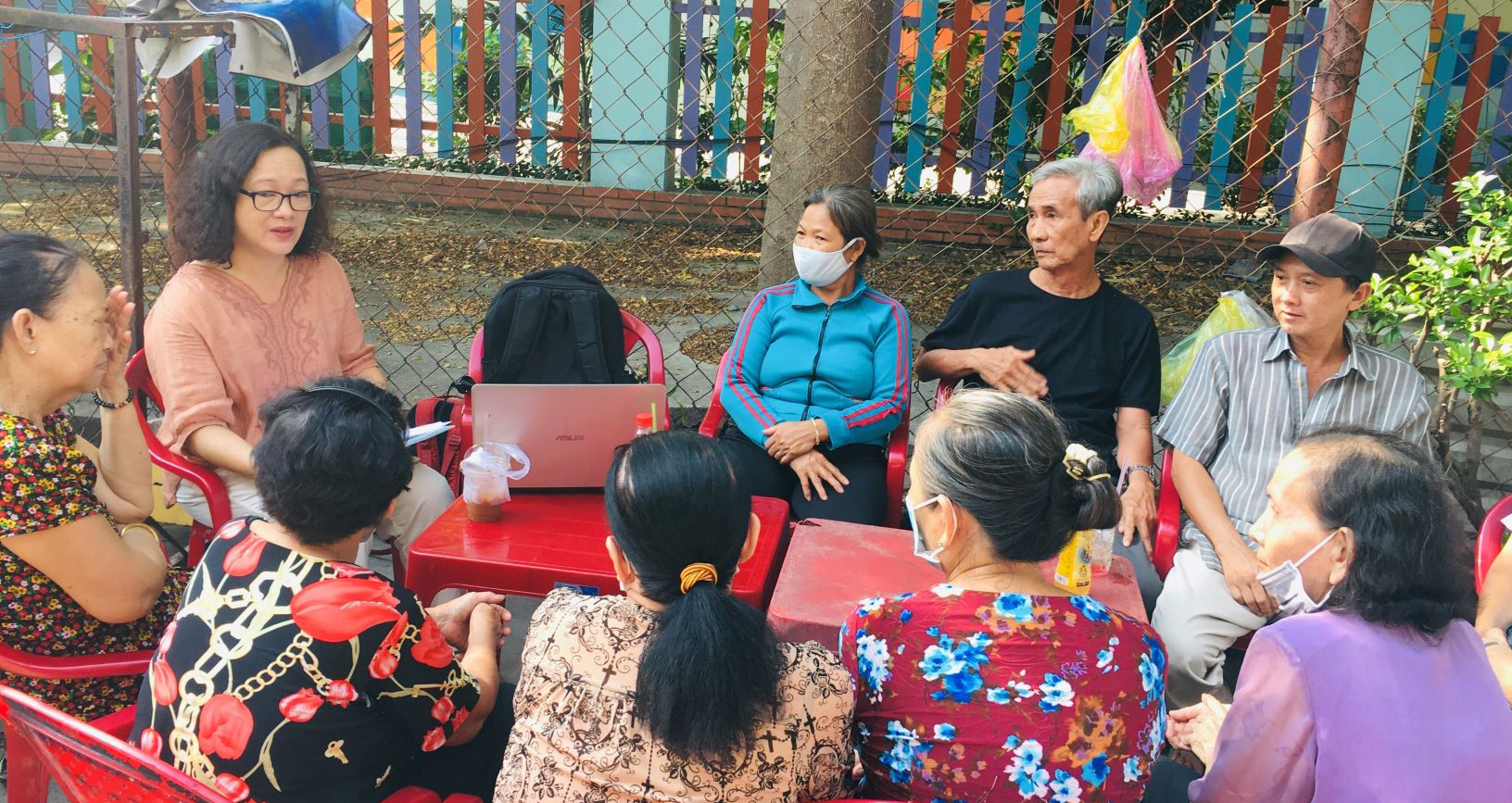Social inclusion matters for flood planning in Ho Chi Minh City
Background and Objectives
Ho Chi Minh City is typical of the rapid urbanisation that is happening across the world. In fact, more than half of mankind now live in cities, while climate change is posing an increasing threat to global social and economic infrastructure. The intervention therefore aims to find innovative solutions to ensure HCMC evolves into a robust city that can withstand the impacts from climate and non-climate risks. The primary objective is to develop a Geographical Information System (GIS) database for the drainage system of the city.
The database and flood model will be used to increase HCMC’s climate resilience in respect to flooding, enabling better flood planning and response. However, the model will also impact delivery of wider sustainability objectives and social outcomes. Flooding affects different groups differently. Therefore, who is likely to be affected by flooding, and to what extent, depends on a wide range of factors.
There are many social challenges to climate change resilience in our country, especially: (1) Women, people with disabilities and older people are typically excluded from short-and long-term decision making in responses to climate change / flood risk management; (2) Climate change / flooding worsen gender inequalities, create extra work for women, and exacerbate vulnerability of women in poor households; and (3) Knowledge on climate change and gender is limited.
We are conducting community consultations with objectives such as (1) to obtain local knowledge on flood risks and issues affecting priority GESI groups in our District within HCMC; (2) to propose impact-reduction strategies or recommendations for these groups that can be included in the flood study; (3) to better understand the priorities of different GESI groups and organisations with regards flood planning and response; and (4) to enable communities and organisations to contribute insights into flood impact-reduction strategies for priority GESI groups.
Actions and Implementation
At the end of April and beginning of May, we started activities in District 4, such as conducting consultation meetings with District Authorities, representatives from social organisations and key stakeholders and key representatives from all Wards of the District, where we listened to their ideas about flood risk management strategies and response. During the consultation meeting we explored the areas most affected by flooding. Then we selected the 3-5 Wards, which were most affected, to conduct a focus group discussion with women, men, elderly and vulnerable people. We aimed to (a) understand local knowledge on flood risks and issues affecting GESI groups; (b) better understand the priorities of different groups and organisations with regards flood planning and response ; and (c) enable communities and organisations to contribute insights into flood impact-reduction strategies for priority GESI groups.
We discussed 5 topics across the following themes: (1) Impacts of flooding on the community (for this we wanted to understand in what way your community is currently affected by flooding); (2): Organisational response to flooding (the types of services and responses provided by organisations to manage flooding in your community); (3): Flooding information and communications (the information you want to receive on flooding and how this information should be communicated); (4): Community response to flooding (how you / your community responds to flooding); and (5): Solutions to flooding (what solutions you would suggest to better manage flooding in your community).

Focus Group Discussion with the local vulnerable group in Ho Chi Minh City, Vietnam
Outcomes and Impacts
By our approach, the outcome will be expected to increase the number of women, persons with disabilities and other socially excluded groups actively engaged in consultations during the implementation phase. Also, this will allow for vulnerable communities to feel empowered and have their voices heard. Additionally, it will also enable us to understand how flood risk affects different groups, so their interests can be considered when prioritising flood mitigation options. This also contributes to sustainable development goals.
Due to the controlled COVID-19 situation in Vietnam, we were able to conduct face-to-face meetings with safe distancing measures in place. Our GESI team managed to successfully conduct consultation meetings with 19 people from District authorities, representatives from social organisations, key stakeholders and key representatives from all Wards of the District 4. Also, we conducted focus group meetings with 25 people from Ward 2 of District 4. These groups consisted of lottery ticket sellers, retired people, street vendors and homemakers.
They contributed many feasible ideas and voiced their hope that improved flood planning will eventually reach the disadvantaged groups in society.
The intervention team would like to thank everybody who contributed. By sharing your key insights and personal aspirations, you have helped provide recommendations and strengthen foundations for the later stages of our work.
Partner
Mott MacDonald (MM)
Country
Socialist Republic of Viet Nam
City
Ho Chi Minh City
Themes
Social Inclusion
Risk & Resilience
Author(s)

Hoang Hong Hanh
Gender Equality and Social Inclusive (GESI) Lead, Vietnam, Global Future Cities Programme